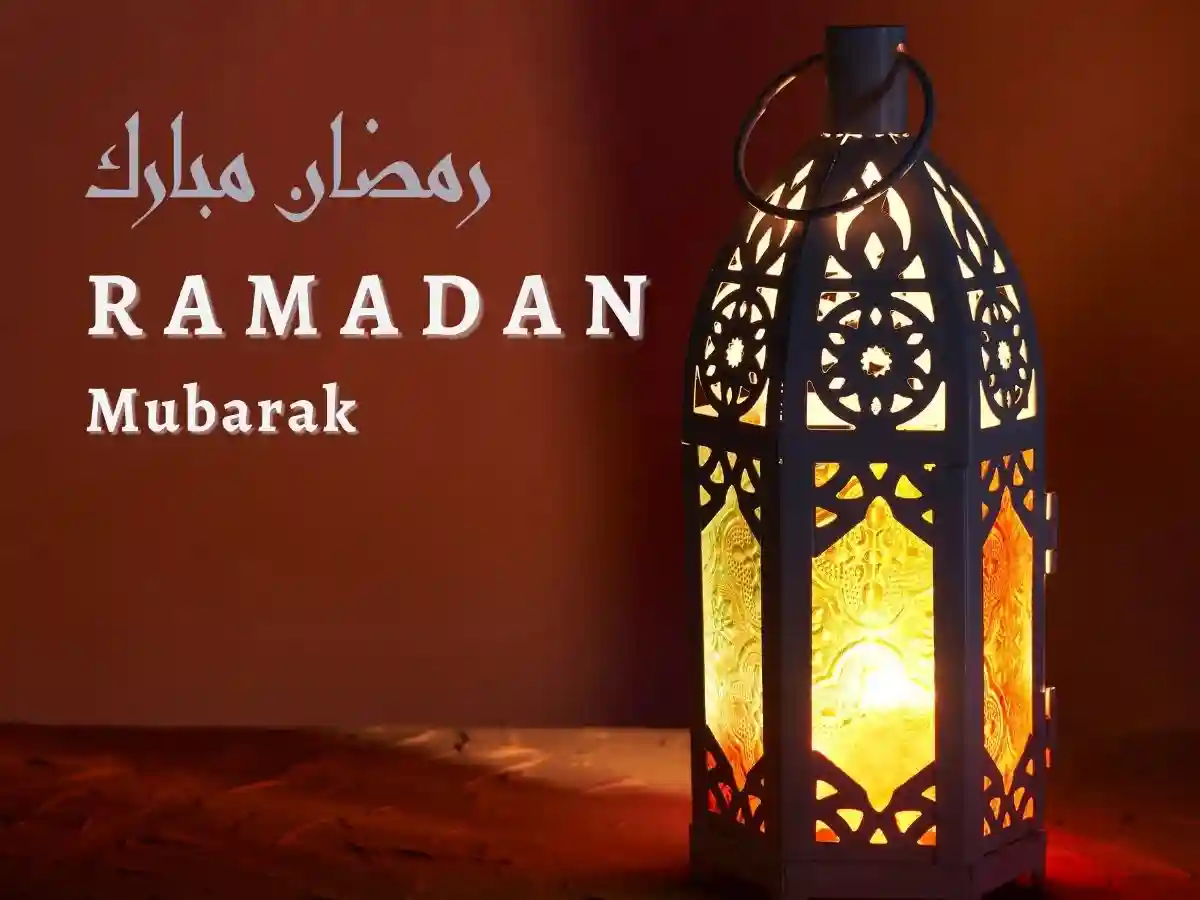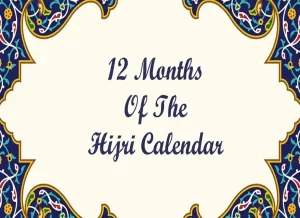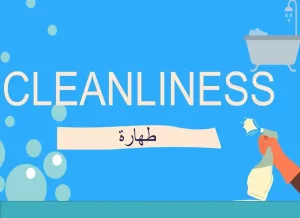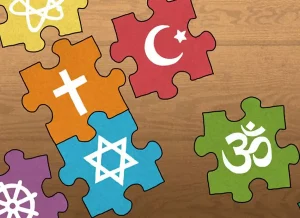Ramadan FAQs: All You Need To Know About Ramadan – Here are all the answers you may have regarding the holy month of Ramadan in Dubai. Here is a FAQ list for residents, expats, and tourists on the month Ramadan.
What is Ramadan?
Ramadan, the ninth month in the Islamic lunar calendar is a time when Muslims fast from sunrise until sunset. Fasting or Saum is one of Islam’s five pillars. The Holy Month, a month that is celebrated with great faith and seriousness by Muslims, has a huge religious and cultural significance.
Muslims refrain from eating or drinking before dawn and break their fast when they hear the Maghreb prayer call in mosques. Ramadan, the holy month of Islam when the Holy Quran is revealed to Prophet Muhammad according to scriptures, is highly revered.
Also Read: Ramadan Information & Ramadan For Kids
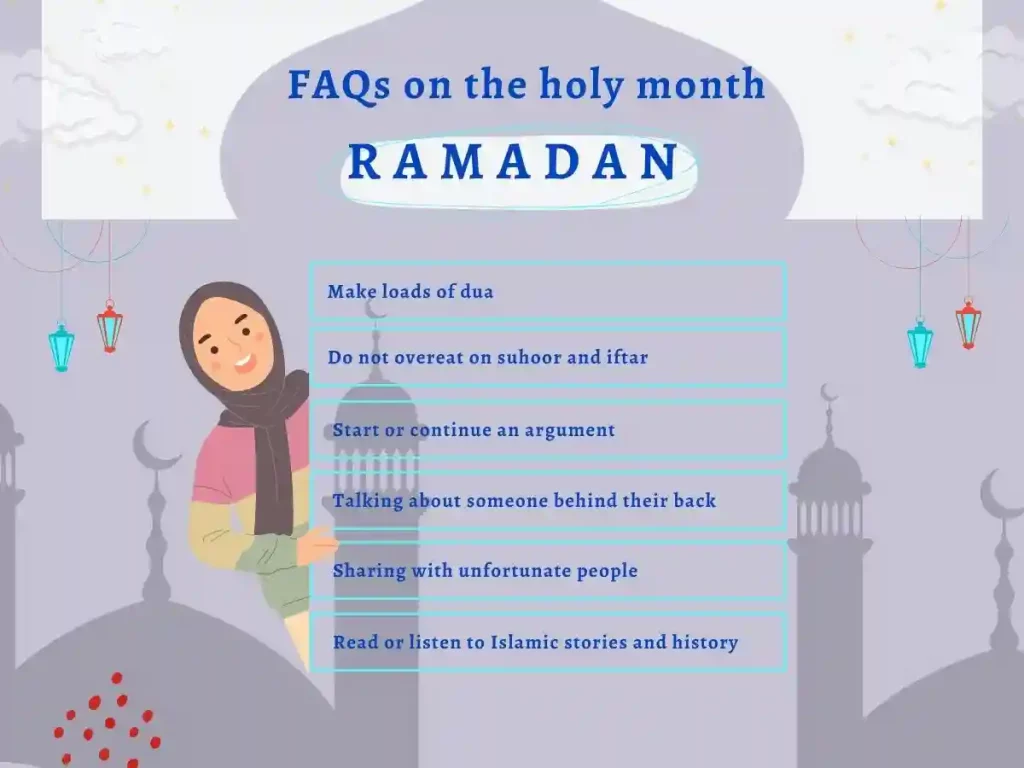
How long can Muslims fast during The Holy Month?
A typical fasting day can last anywhere between 11 and 20 hours, depending on your location. Muslims in the UAE and Middle East will need to fast for between 12 and 14.
What is Suhoor
Suhoor or Suhur refers to the meal that Muslims eat before they begin their fast. Muslims pray five prayers a day. The Suhoor must be consumed before the first five prayers of the day, Fajr. This is done at dawn. This meal is meant to strengthen and prepare your body for a fast of more than 10 hour.
Also Read: The Holy Month of Ramadan Blessings
What is Iftar
Iftar refers to the meal eaten by Muslims during Ramadan at sunset. The Maghreb ‘Adhaan,’ or call to prayer from the nearest mosque is the signal for breaking the fast. Breaking the fast is done with a special date, and sharing the occasion with family and friends.
What changes will there be in the UAE’s work hours during The Holy Month?
Yes. The UAE government declared that since fasting is a strenuous activity that requires energy and commitment, employees of all private companies can work two hour less each day during Ramadan. This is equivalent to no more than six hours of work per day.
What is the new school time during The Holy Month?
Knowledge and Human Development Authority has announced that the private school schedule will be reduced to just five hours per day. The purpose of this is to encourage and help students, teachers, and other staff who will be fasting.
Is The Holy Month applicable to children?
It is not recommended that children who are still growing fast. Their bodies may not be able adjust to long periods without food or drink. Once they reach puberty they are encouraged fast. Although young children do not need to fast, it is important that you instill the spirit of generosity and faith associated with The Holy Month.
Also Read: Printable Ramadan Mubarak Worksheet Download
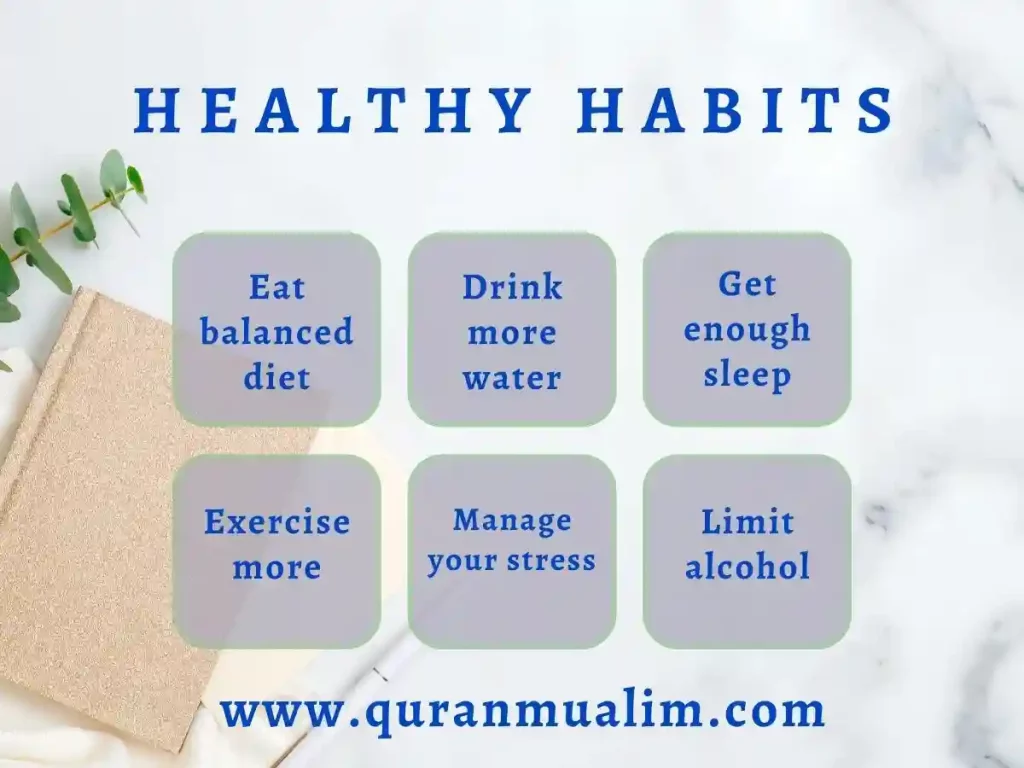
How can I help my Muslim co-workers or friends who are fasting at work?
You can still enjoy the spirit of Ramadan even if you are not fasting.
- Fasting with Muslim co-workers or friends can be a spiritual experience. You will gain a better understanding of their situation, and you can empathise.
- To encourage your friends and coworkers to fast and make their lives easier, you could refrain from eating or drinking in front them.
- Zakat or charity is an important part of Ramadan. You can support and participate in the message by donating to the poor, even if it is only a small amount. Charity is an noble and secular goal.
- Say yes to every Iftar invitation! You are welcome to participate in the fast-breaking ceremonies of your Muslim colleagues and friends. Bring a snack to support the Iftar!
Suggested Read: The Clear Quran, El Coran and The Essential Book of Quranic Words
We hope we have cleared up all your questions about Ramadan in UAE. Ramadan, the month of The Holy Month, is a very auspicious one and filled with joy and faith. No matter what your religion is, we hope you can share in the message of kindness, compassion and purity.
Ramadan FAQs
- What is Ramadan? Ramadan is the ninth month of the Islamic calendar, a time for fasting, prayer, reflection, and community.
- When is The Holy Month? Ramadan’s dates change every year based on the lunar calendar. In 2024, it’s expected to fall between March 10th and April 9th (exact dates to be confirmed).
- Who fasts during Ramadan? All healthy adult Muslims are obligated to fast, but exemptions exist for children, pregnant or breastfeeding women, travelers, the sick, and elderly.
- What does the fast involve? Abstaining from food, drink, smoking, and sexual activity from dawn to sunset.
Fasting:
- Can I drink water during the fast? No, not during daylight hours.
- What if I accidentally eat or drink something? If unintentional, the fast is still valid. Seek guidance if unsure.
- Can I take medication? Consult your doctor about taking medication during the fast.
- How can I stay healthy while fasting? Eat nutritious meals during Suhoor and Iftar, stay hydrated before and after the fast, and get enough rest.
Prayer and Practices:
- How much should I pray during Ramadan? Muslims are encouraged to increase their prayers, including additional night prayers (Tarawih).
- What should I read during Ramadan? Focus on reciting and reflecting on the Quran.
- What are some good deeds I can do during Ramadan? Charity, volunteering, helping others, and forgiveness are encouraged.
Community and Celebration:
- How do Muslims break their fast? With a meal called Iftar, often shared with family and friends.
- What is Eid al-Fitr? A joyous celebration marking the end of Ramadan with prayers, feasting, and gift-giving.
- How can I be respectful of Muslims during Ramadan? Avoid eating, drinking, or smoking in front of those fasting, offer greetings and support, and learn more about the significance of Ramadan.
Additional:
- What are some common misconceptions about The Holy Month? That it’s only about not eating, that it’s too difficult, or that it’s only for Arabs.
- Where can I find more information about Ramadan? Mosques, Islamic organizations, online resources, and books can provide further information.
Remember: This is just a starting point. Feel free to ask more specific questions or delve deeper into any of these topics!
Our Latest Ramazan Articles:
- Ramazan Apps You Must Have
- How To Enjoy The Holy Month With Menstruation?
- Ramazan Increases Women’s Responsibility
- 5 Beautiful The Holy Month Duas Every Muslim Should Know
- Ramadan Supplications: Qualities Of A True Servant
- Ramadan Mubarak: Hear Greetings in Different Languages
- Ramazan Healthy Recipes To Open And Close Your Fast With
- 7 Heart Warming Duas To Celebrate The End of Ramadan 2024
- What is The Celebrate The Holy Month? Here are 5 Unique Traditions
- Ramadan Recipes For Kids: A Collection Of Fun Kid-Friendly Recipes
- Ramazan Begins With Varied Fasting Hours Across The World Wide
- Select 7 Heart Warming Duas To Celebrate The End of Ramadan 2024
- Fasting Begins on Thursday in Saudi Arabia Despite There Being No Ramazan Moon


